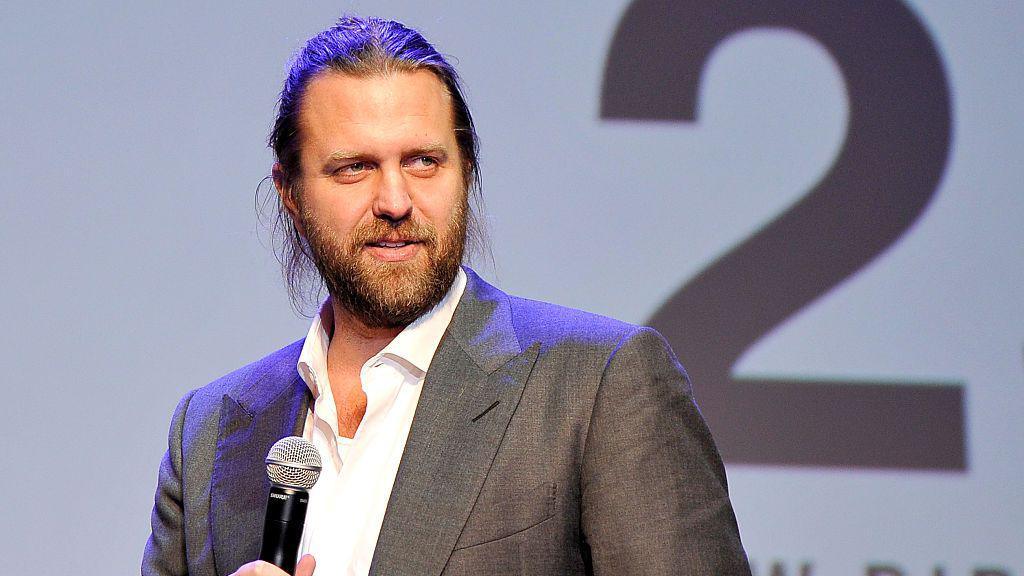Hold onto your popcorn, folks, because this Netflix saga takes a wild turn. A director who was once basking in the glow of success is now facing serious charges. Allegations of extravagant spending habits, luxury items, and a missing $11 million have landed him in hot water with Netflix and the law. Get ready to unpack the shocking details of this Hollywood downfall, where the line between artistic vision and financial recklessness blurs in a dizzying spectacle of extravagance.
The Allegations Against Director Carl Erik Rinsch

Netflix’s Initial Investment and Rinsch’s Request for More Funds
According to the indictment, Rinsch reached an agreement with a streaming service, identified as Netflix by the New York Times, to complete a science fiction show called White Horse. Netflix allegedly paid Rinsch approximately $44 million between 2018 and 2019 for “existing episodes” that had already been shot, and to also “fund completion of the rest of the show,” which the NYT noted was later renamed to Conquest.
The filmmaker allegedly then asked Netflix for more money to fund the project between 2019 and 2020. The indictment claims that the streaming service “ultimately agreed to pay” an additional $11 million to a company Rinsch controlled on or about March 6, 2020.

The Indictment: Rinsch’s Alleged Misuse of $11 Million
The entirety of those funds was to be spent on the completion of White Horse,” the U.S. Attorney’s Office claimed in the release. “But Rinsch did not use those funds to complete White Horse.”
According to the indictment, Rinsch allegedly transferred the funds he received “through a number of different bank accounts before consolidating them in a personal brokerage account” and then used the funds for personal expenses including stock trading — which had been “unsuccessful.”
The director allegedly “lost more than half” of the $11 million “less than two months” after receiving the funds from Netflix. The indictment then claims that the rest of the money was later used on “cryptocurrency” and “personal expenses and luxury items.”

Failure to Complete the TV Show and Return of Fraudulent Funds
According to the indictment, Rinsch never completed the show and “never returned the fraudulently obtained funds.”
The Spending Spree: Luxury Items and Personal Expenses
Per the Attorney Office’s release, Rinsch allegedly spent more than $3.7 million on furniture and antiques, more than $2.4 million on purchasing luxury cars, including five Rolls-Royces and one Ferrari, and more than $600K on watches and clothing.
Authorities also claim that the 47 Ronin director spent $1.7 million on credit card bills and over $1.4 million on divorce lawyers and lawyers to sue Netflix for “even more money.”
A photo of the Netflix logo.
A Fleet of Luxury Cars and Furniture Fit for a King

Director Carl Erik Rinsch, known for his work on films like “47 Ronin,” allegedly used his $11 million from Netflix for a lavish lifestyle, including purchasing a fleet of luxury cars and opulent furniture. The indictment reveals a staggering expenditure on high-end vehicles, including five Rolls-Royces and one Ferrari. These purchases alone amounted to over $2.4 million, indicating a significant portion of the fraudulently obtained funds was directed towards personal transportation.
Rinsch’s taste for luxury extended beyond his vehicle collection. He reportedly spent over $3.7 million on furniture and antiques, creating an environment that could only be described as fit for royalty. This extravagance included high-end mattresses and luxury bedding, for which he allocated over $933,000. The director’s spending spree also encompassed over $600,000 on watches and clothing, showcasing a lifestyle that far exceeded what could be justified by his professional earnings.
According to the indictment, this extravagant spending was not a one-time affair but a consistent pattern of behavior. The director allegedly used the funds to finance a lifestyle that was far removed from the typical budget of a Hollywood filmmaker, even one with Rinsch’s credentials.

Cryptocurrency, Credit Card Bills, and Divorce Lawyers
Rinsch’s financial misadventures did not stop at luxury items. He allegedly used a significant amount of the funds to invest in cryptocurrency, a venture that proved to be as risky as it was speculative. Within less than two months of receiving the $11 million from Netflix, Rinsch had already lost more than half of it, according to the indictment.
The remaining funds were then directed towards covering personal expenses and legal fees. Rinsch reportedly spent $1.8 million on credit card bills, suggesting a lifestyle that was far beyond his means. Additionally, he allocated over $1.4 million to divorce lawyers and lawyers to sue Netflix for even more money. This legal pursuit was part of a broader strategy to secure additional funds, despite the fact that he had already embezzled a substantial amount.
According to the indictment, Rinsch’s financial misconduct was not just about personal gain but also about deceiving Netflix into believing that he was still working on the show. He allegedly informed the streaming service that the show was progressing well, even as he was losing money in the stock market and cryptocurrency investments.

Mattresses, Watches, and Clothing: The Lavish Lifestyle
Rinsch’s alleged expenditures paint a picture of a lavish lifestyle that far exceeded his professional earnings. The $933,000 spent on mattresses and luxury bedding alone is a testament to the opulence he sought to surround himself with. This amount could easily cover the cost of high-quality bedding for a small army, yet Rinsch chose to allocate such a significant sum to personal comfort.
The $600,000 spent on watches and clothing further underscores his penchant for luxury. High-end fashion and timepieces are often seen as status symbols in the entertainment industry, but Rinsch’s spending suggests a level of extravagance that is rare even among the industry’s elite.
Expert analysis suggests that such lavish spending is often a red flag for financial misconduct. According to financial advisors, allocating such substantial sums to personal items instead of business expenses is a clear indication of financial mismanagement or worse. Rinsch’s case serves as a cautionary tale for those in positions of trust and financial responsibility.
Consequences and Implications
Federal Charges and Potential 20-Year Prison Sentence
Rinsch’s alleged actions have led to serious legal repercussions. He faces federal charges of wire fraud, money laundering, and engaging in monetary transactions derived from specified unlawful activity. If found guilty, he could face up to 20 years in prison. The severity of these charges underscores the gravity of his alleged actions and the potential consequences for those who misuse funds entrusted to them.
The legal process is ongoing, and Rinsch has yet to enter a plea. His initial court appearance revealed a lack of familiarity with the 12-page indictment, as he responded to the judge’s inquiry with, “Not cover to cover.” He was released on a $100,000 bail and is expected to attend trial in New York at a later date.
Netflix’s Cancellation of the Show and Write-Off of $55 Million
Netflix’s decision to cancel Rinsch’s show after he began exhibiting odd behavior was a pivotal moment in this saga. The streaming service ultimately wrote off the $55 million it had given to the director, a significant financial loss for the company. This move highlights the importance of due diligence and the risks associated with entrusting large sums of money to individuals in the entertainment industry.
Rinsch’s alleged deception extended to claiming that the luxury items he purchased were necessary for the show. An arbitrator and former Los Angeles Superior Court judge, Rita Miller, ruled that none of the purchases were production-related. This ruling further underscores the extent of Rinsch’s alleged deceit and the lengths he went to conceal his misconduct.
The Fallout: Rinsch’s Reputation and the Film Industry’s Response
The fallout from Rinsch’s alleged misconduct has been significant. His reputation in the film industry has taken a severe hit, and the incident serves as a stark reminder of the risks associated with entrusting funds to individuals in positions of responsibility.
The film industry’s response to this case has been a mix of shock and disbelief. Many in the industry are questioning how such a high-profile director could allegedly engage in such blatant financial misconduct. The case has also sparked discussions about the need for stronger oversight and accountability measures in the entertainment sector.
Industry experts point out that Rinsch’s case is not isolated. There have been instances in the past where individuals in positions of trust have misused funds, leading to significant financial losses for production companies. This case highlights the need for more robust financial oversight and accountability mechanisms to prevent such incidents in the future.
The entertainment industry is known for its glamour and glitz, but it is also a business that requires careful financial management. Rinsch’s alleged actions serve as a cautionary tale for those in the industry, emphasizing the importance of transparency and accountability in financial matters.
As the legal proceedings continue, the industry will be watching closely to see how this case unfolds. The outcome will not only impact Rinsch’s future but also set a precedent for how such cases are handled in the entertainment industry.
Conclusion
This shocking case of alleged financial misconduct throws a spotlight on the often opaque world of Hollywood finances. It raises serious questions about the level of oversight and accountability within production companies, particularly when dealing with substantial sums from major streaming platforms. While the director maintains his innocence, the allegations paint a disturbing picture of potential abuse of power and trust. The impact extends beyond the immediate parties involved, casting a shadow over the industry’s reputation and potentially influencing future production contracts and financial practices.







Add Comment